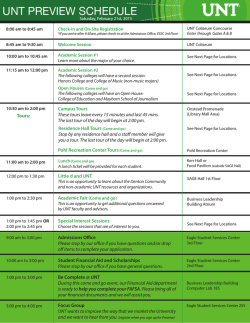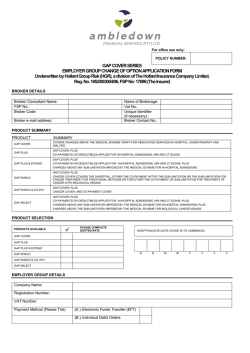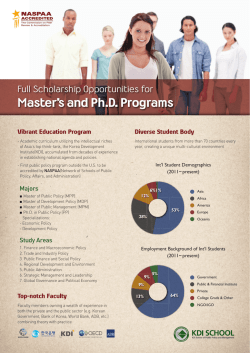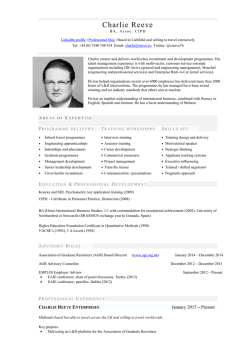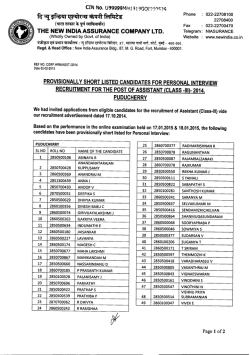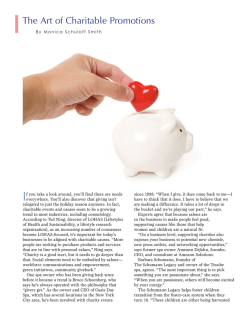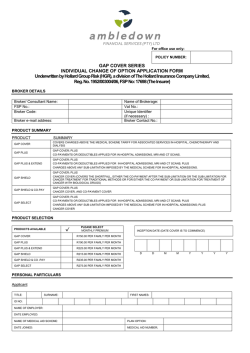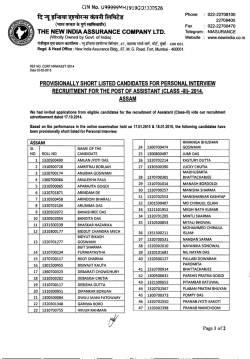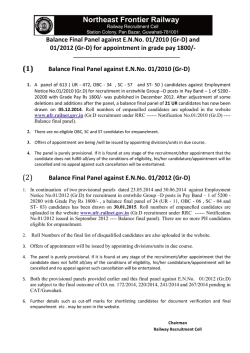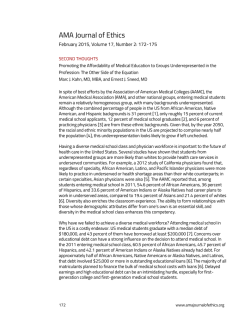
Executive Summary
SPA National Expert Think Tank (NETT) Co-ordinating the relationship between recruitment and admissions Executive Summary About the guide The guide has been developed by Supporting Professionalism in Admissions (SPA) and HE practitioners from its National Expert Think Tank (NETT) to encourage a more integrated approach within a HE provider, heighten understanding internally and support the strategic planning of its recruitment, selection and admission of students. It is helpful for HE providers to think of all their pre-entry activity in holistic terms, irrespective of job titles and owning departments. It is imperative that accurate, consistent and reliable information, advice and guidance is delivered throughout all stages of the application process, both to ensure a good applicant experience and to mitigate the risk of any misrepresentation. Regardless of where individuals involved in a HE providers’ recruitment and admissions activities are physically located, or what other responsibilities they have, if they are not provided with the means to keep informed and understand contiguous areas then the institution risks a mismatch that may cause their involvement to not fully support fair admission and the selection of students. An alignment of recruitment and admissions functions, to include a mutual understanding of sector-wide issues, should make it more efficient, effective and mutually beneficial for applicant and institution alike. Recommendations for individual HE providers 1. Conduct an evaluation of the recruitment and admissions relationships within your own institution, including anyone not directly employed by you (e.g. partners; agents, student ambassadors; alumni) to accurately identify your admissions and recruitment ‘community’. One approach to this would be to do a stakeholder analysis and plot all the people concerned by their level of influence and involvement. This would not only help in identifying who the right people are, but also how much they should engage with one another. Promote and enhance formal mechanisms for those identified as the most highly influential and involved in admissions and recruitment to engage with one another and to have clear responsibilities for informing others. 2. Use the interactive review toolkit provided with the guide to survey relevant stakeholders, analyse the significance of the survey findings and develop an action plan to redress any issues as part of a continuing review and enhancement plan. The aim should be to improve the sharing of information and the level of understanding across recruitment and admissions. The survey can be repeated afterwards and compared to the original results to assess how effective the action plan has been in delivering improvements. 3. Plan strategic policy in advance to promote effective collaboration and a unified recruitment and admissions community. 4. Adopt a flexible approach to recruitment activities, tailored to different audiences, adapting to changes in admissions procedures and informing admissions practice. 5. Ensure fairness and transparency in requirements and offer-making, helping to ensure policies are understood by applicants and their advisors and consistently applied by staff. 6. Make effective use of data and information to accurately collect, link-up and share intelligence between recruitment and admissions. SPA is an independent and objective voice on UK higher education (HE) admissions. It leads on the development of fair admissions, providing an evidence base and recommendations for good practice and in helping universities and colleges maintain and enhance excellence and professionalism in admissions, student recruitment and widening participation/access. SPA works closely with HE providers and other stakeholders to give outputs as a resource for institutions which wish to develop and update their admissions practice and policy to enhance quality, transparency, reputation and fairness. Full information on SPA and its work can be found at www.spa.ac.uk.
© Copyright 2026

